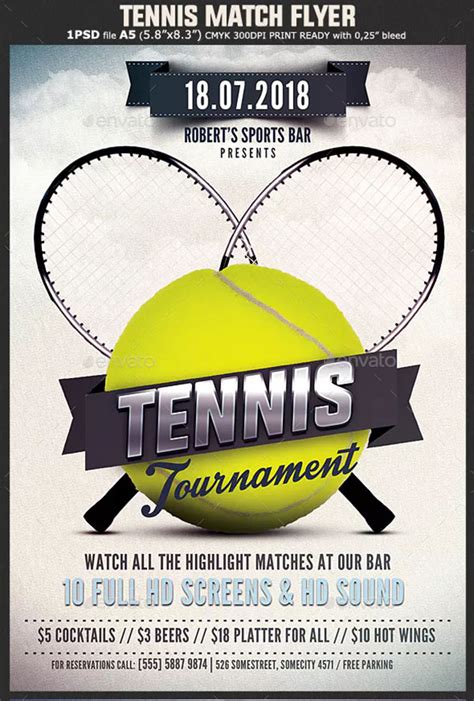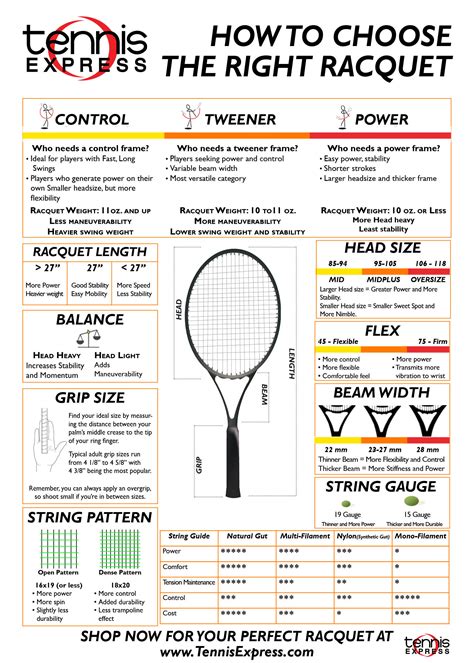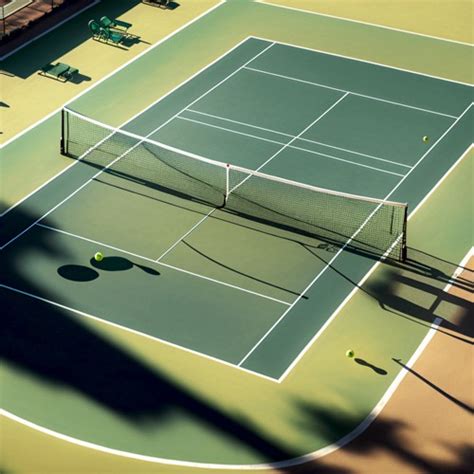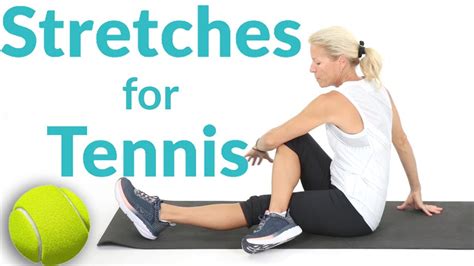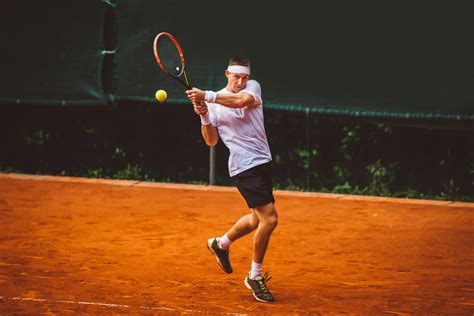Explore essential tips for preparing for your first tennis tournament, including training schedules, gear, mental preparation, and setting realistic goals for success.How To Prepare For Your First Tennis Tournament
Embarking on your first tennis tournament can be an exhilarating yet daunting experience. Whether you’re a seasoned recreational player or new to the game, preparation is key to maximizing your performance and enjoyment. This guide will walk you through the essentials of tournament readiness—from understanding the fundamentals of tennis tournaments to setting realistic goals and establishing an effective training schedule. We’ll also cover the essential gear you need and share valuable mental preparation tips to help you stay focused and confident on the court. Join us as we help you navigate this exciting journey, ensuring that your first tournament is both a memorable and rewarding experience. Get ready to serve your best!
Understanding The Basics Of Tennis Tournaments
When considering how to prepare for your first tennis tournament, it’s crucial to grasp the fundamental structure of these events. Tennis tournaments come in various formats, and understanding them can significantly enhance your preparation.
Most tournaments are categorized as either singles or doubles. In singles, one player competes against another, while in doubles, teams of two players face off. Familiarizing yourself with the specific event format can influence your training and match strategies.
Tournaments are also generally classified by their level, such as local club tournaments, regional events, or larger competitions like state championships. Each level may impose different rules, entry requirements, and competition styles. Joining a local tournament is a great way to start since these events tend to provide a more relaxed atmosphere for beginners.
Another critical aspect is the scoring system. Most tournaments use either the traditional scoring system or the no ad scoring format. In traditional scoring, you must win by two clear points, while no ad scoring means that the first player to reach four points wins the game, regardless of the margin. Learning the nuances of these scoring systems can help you adapt your gameplay accordingly.
Familiarize yourself with the scheduling and draw process. Understanding when and where you’ll play can help you prepare both logistically and mentally. Check the tournament’s website or contact the organizers to get all necessary details about match days and potential opponents.
By grasping these basics, you’ll be better equipped to face the challenges of your first tennis tournament. Keep these insights in mind, and you’ll approach the experience with confidence and clarity.
Setting Realistic Goals For Your First Tournament
Setting realistic goals for your first tennis tournament is a crucial step that can significantly influence your performance and enjoyment of the event. While the excitement of competition can be thrilling, it’s important to ground your expectations in reality to ensure a positive experience, regardless of the outcome.
How to approach goal-setting involves understanding what you want to achieve and being honest about your current skill level. Here are some key strategies to consider:
- Focus on Skill Development: Instead of fixating solely on winning, aim to improve specific aspects of your game. This could include enhancing your serve or refining your footwork. These tangible improvements can be motivating and rewarding.
- Set Performance-Based Goals: Create goals centered around your performance, such as maintaining a certain percentage of first serves in play or reducing unforced errors. This keeps the focus on your gameplay rather than solely on the match outcome.
- Embrace the Experience: In your first tournament, consider goals related to simply enjoying the experience. Aim to meet new players, learn from the matches, and embrace the competitive atmosphere. Overall enjoyment can contribute to long-term success.
- Be Flexible: Understand that as you play, unexpected challenges may arise. Be prepared to adapt your goals mid-tournament. If you realize that a specific goal isn’t feasible, modify it rather than becoming discouraged.
- Celebrate Small Wins: Acknowledge and celebrate minor achievements throughout the tournament, whether it’s winning a game or simply playing a good rally. This mindset promotes a healthier and more positive approach to competitive tennis.
By setting realistic goals tailored to your abilities, you’ll find that your first tournament becomes an enriching experience rather than a source of overwhelming pressure. Remember, the ultimate objective is to enjoy the game and grow as a player, which can set the foundation for future tournaments.
How To Create A Training Schedule For Success
Creating a training schedule is crucial when you’re preparing for your first tennis tournament. A well-structured plan not only keeps you organized but also ensures that you cover all the necessary skills and drills needed for competition. Here are some steps to help you formulate an effective training schedule for success:
- Assess Your Current Skill Level: Before you begin planning, take some time to evaluate your current skills. Identify your strengths and weaknesses, which will help in customizing your training sessions.
- Set Clear Objectives: Define what you want to achieve in your training. This could include improving specific shots, building stamina, or enhancing your serve. Remember to ensure your goals align with your overall aim for the tournament.
- Allocate Time Wisely: Decide how many days a week you can commit to training. Depending on your schedule, aim for at least 3-5 sessions a week. Make sure to balance your training between court time and fitness workouts.
- Include Variety in Your Routine: To stay engaged and address different aspects of your game, mix up your training routine. Incorporate drills for serving, volleying, footwork, and match play. Don’t forget to add conditioning sessions to improve your physical fitness.
- Schedule Specific Drills: Dedicate time for specific drills that target your weaknesses. For example, if your forehand needs work, allocate a session focused entirely on forehand drills. Use dead ball drills, rallying with a partner, or wall hitting.
- Prioritize Match Preparation: In the weeks leading up to the tournament, include practice matches in your schedule. This will help simulate match conditions, allowing you to practice under pressure.
- Monitor Your Progress: Keep a training journal to track your sessions, how you felt, and
what you accomplished. This will help you to recognize patterns in your improvement and make necessary adjustments.
- Rest and Recovery: Remember to include rest days in your training schedule. Recovery is just as important as practice to avoid burnout and injuries.
By following these steps, you’ll be well on your way to creating a comprehensive training schedule that prepares you for your first tennis tournament. Stay committed, and good luck on your journey!
Essential Gear You Need To Prepare For Competition
Preparing for your first tennis tournament requires more than just skill and strategy; having the right equipment is crucial. Here’s a rundown of the essential gear you need to ensure that you are ready to compete confidently.
- Tennis Racket: Your choice of racket should be based on your playing style, experience level, and comfort. Ensure you have a racket that suits you well and is properly strung for optimal performance.
- Tennis Balls: Make sure to bring along a can of tennis balls. Official tournaments often require specific types of balls, so check the tournament guidelines. Practice with the same type of balls you’ll use in matches.
- Footwear: Invest in a good pair of tennis shoes designed for the court surface you’ll be playing on. Proper footwear not only enhances your performance but also minimizes the risk of injury.
- Appropriate Attire: Dress comfortably in moisture-wicking, breathable fabrics. It’s also wise to check the tournament’s dress code to ensure you meet any requirements.
- Accessories: Don’t forget to bring a sweatband or cap to keep sweat out of your eyes. A water bottle for hydration is also essential, as staying hydrated can affect your performance.
- Extra Gear: Pack some extras like socks and even a second pair of shoes in case your first choice gets wet or muddy. You might also want to include kinesiology tape or a first-aid kit for minor injuries.
Equipping yourself with the right gear not only boosts your confidence but also contributes significantly to your overall performance. Make sure to check your equipment before the tournament day, so you’re ready to focus solely on your game.
Mental Preparation Tips For Your First Tennis Match
Mental preparation is a crucial aspect of succeeding in your first tennis tournament. Here are several tips to help you build a positive mindset and enhance your performance:
- Visualization Techniques: Spend some time visualizing yourself playing well. Picture yourself executing your shots perfectly and handling pressure with confidence. This technique can help reinforce a positive mindset.
- Focus on the Process: Rather than fixating on the outcome of the match, concentrate on your strategies and techniques. This can reduce anxiety and help you stay present during the game.
- Breathing Exercises: Engage in deep breathing exercises to calm your nerves before and during your match. This can help you maintain composure and focus, particularly during high-pressure moments.
- Positive Self-talk: Encourage yourself with positive affirmations. Remind yourself of your preparations and capabilities. Phrases like “I am ready” or “I can do this” can boost your confidence.
- Set Short-term Goals: During the match, focus on small, achievable goals such as winning a specific game or executing a particular stroke. This can help you maintain motivation and reduce feelings of overwhelm.
- Accept Mistakes: Understand that mistakes are part of the game. Instead of dwelling on errors, learn to let them go and focus on what you can control moving forward.
By incorporating these mental preparation tips into your routine, you’ll be better equipped to handle the challenges of your first match and perform to the best of your ability. Remember, how you prepare mentally is just as significant as your physical preparation.
Frequently Asked Questions
What should I do in the weeks leading up to my first tennis tournament?
In the weeks leading up to your tournament, focus on a balanced training regimen that includes practicing your shots, improving your fitness level, and refining your strategies. Make sure to also play practice matches to simulate tournament conditions.
How can I manage my nerves before the tournament?
Managing nerves can be achieved through mental preparation techniques such as visualization, deep breathing exercises, and positive self-talk. Familiarizing yourself with the tournament environment beforehand can also help reduce anxiety.
What equipment do I need to bring to my first tennis tournament?
Make sure to bring your tennis racquets, a full set of appropriate tennis attire, multiple pairs of tennis shoes, water bottles, snacks, and any other essentials like wristbands or caps. It’s recommended to have an extra racquet in case of damage.
How should I plan my tournament day schedule?
On tournament day, arrive early to give yourself enough time for warm-up, check-in, and practice. Plan your meals accordingly to ensure you have adequate energy, and keep your schedule flexible to accommodate match times.
What strategies should I use during my first match?
Focus on playing your game rather than worrying about your opponent. Stick to your strengths, maintain a steady rhythm, and be adaptable to the match dynamics. Consider using simple strategies like aiming for specific zones on the court.
How can I stay hydrated and fueled during the tournament?
It’s vital to drink water consistently throughout the tournament and consider electrolyte drinks if the weather is hot. Keep snacks such as energy bars or fruits handy, and eat light meals that are easy to digest.
What should I do after the tournament is over?
After the tournament, take time to reflect on your performance, noting what worked well and what could be improved. Regardless of the outcome, celebrate your participation and consider setting goals for your next tournament experience.

